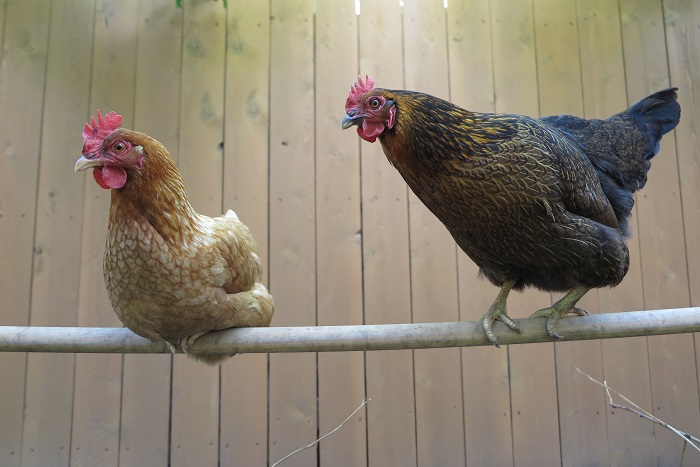 Trending around the time of the Great Depression, locals started raising backyard hens for very practical and edible reasons. Have you ever had the opportunity to compare the yolk of an egg from a backyard raised hen versus a standard store-bought and refrigerated one? Even if “shelling out” the big bucks to purchase pricey AA, free range, cage free and organic eggs from the marketplace – you would have to see (and taste) it for yourself. The quality, integrity of the yolk and taste of those store-bought eggs is staggeringly sad, pale and bland in comparison to what the hens from your backyard can potentially bring to your table.
Trending around the time of the Great Depression, locals started raising backyard hens for very practical and edible reasons. Have you ever had the opportunity to compare the yolk of an egg from a backyard raised hen versus a standard store-bought and refrigerated one? Even if “shelling out” the big bucks to purchase pricey AA, free range, cage free and organic eggs from the marketplace – you would have to see (and taste) it for yourself. The quality, integrity of the yolk and taste of those store-bought eggs is staggeringly sad, pale and bland in comparison to what the hens from your backyard can potentially bring to your table.
It does take planning and resources to create a backyard habitat for chickens, and getting started is quite straight forward. While you will need to supply the basics, chickens are fascinating to watch, generally good-natured and fun to get to know in a backyard setting. Chicks and mature chickens have different needs, and will need the appropriate feed, which can be purchased in large 25lbs bags at your local IFA or at some pet supply stores. Supplying adequate yard space to roam and forage, they enjoy companionship, and same-sexed females preferred, Roosters while beautiful creatures, are generally frowned at by those living close who will complain about their 5 am crowing.
Supply a coop that offers protection from the elements and potential predators, even in the heart of SLC, large birds of prey like a Peregrine Falcon or Red Tailed Hawk can swoop in for a chick. Raccoons or a roaming neighbor dog can take out hens as well. In SLC, permits and limits to numbers (up to 25) are regulated by Animal Services, but other than routine upkeep with the coop, keep your neighbors happy by informing them about your intentions, and possibly gift them with some of those fantastically tasty, backyard fresh eggs!
Winter will bring some new challenges for your coop of feathered backyard friends where cold temps, reduced daylight, and less foraging time are available for them. Here are four things to consider during the frosty calendar months and for several eggs to come.
Fortify the Coop
Making sure your chickens have an enclosed area, and will be protected from wind and moisture. A waterproof plastic tarp can be tacked and secured around gaps and over the roof to keep things cozy. Before the cold sets in make sure to remove old bedding materials and line them with fresh straw or hay, cedar or pine shavings, grass clippings, shredded, dry leaves can be used as well.
Be aware that rodents will be attracted to chicken feed, taking time to clear out the coop will help to clear out additional guests as well.
Adequate and Ice-Free Water
The most critical point is to ensure that your chickens have access continually to drinking water, because they are trying to conserve energy and stay warm, water needs to be available to keep them from freezing to death. Electric water-bucket deicers or heat lamps can assist to keep water tanks from becoming a solid block of ice.
Does my Chicken need a sweater?
When the temps dip below freezing or into the negative, there are serious health risks that can come to your brood. While a sweater may look fashionable, it isn’t necessary to keep your chickens safe in the cold months, their own feather down “coats” should be adequate. Some breeds fair better in the cold, such as the Ameraucana or Wyandotte, and those with feathered legs or smaller pea combs. If you are concerned about comb or waddle frost-bite, it can be prevented by placing a bit of Vaseline on to insulate and protect them.
Bump up the Protein, More Light
The frozen ground reduces chickens ability to scratch-up and forage for insects and juicy worms. To combat their lower protein consumption and keep them laying, experts generally recommend a higher protein feed. Selecting a chicken feed that contains at least 20% protein along with an artificial light source to ensure that they receive the necessary boost to continue laying.





